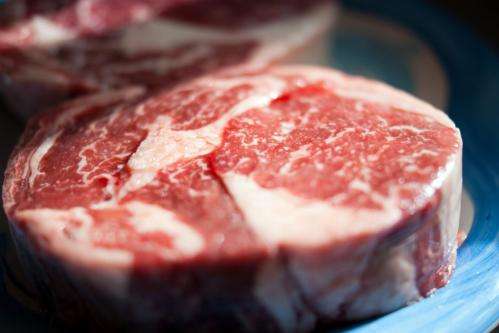Hunger for meat pushing food security to the edge

Promoting more sustainable plant-based foods and reducing demand for meat and dairy products will be essential to feed billions of people and avoid serious and ongoing global food security impacts, warn experts from UTS's Institute for Sustainable Futures (ISF) in a new book launched this week.
Meat-heavy diets are a key driver of phosphorus use, one of the world's key agricultural nutrients. Research by Professor Stuart White and Dr Dana Cordell shows that phosphorus mined from non-renewable phosphate rock will become increasingly scarce this century with very few producing countries controlling the market, leading to volatile food prices.
"We have become highly dependent on rock phosphate for food production," Professor White said. "The 2008 food riots were partly due to an 800 per cent spike in the price of phosphorus. With meat consumption predicted to double in just fifty years, the demands of meat-heavy diets will threaten food security more regularly."
Professor White said the good news was that doing something about our diets is straightforward and has many co-benefits. "The US's top nutritional panel has recognised this, announcing last week that people should eat less meat and that the country's dietary guidelines should align environmental as well as public health goals," he said.
"A shift to more sustainable plant-based foods will require fewer resources such as phosphorus, while benefiting human health and the wellbeing of animals used as livestock."
In Meat the Future: How Cutting Meat Consumption Can Feed Billions More, publisher Nicolaas G. Pierson Foundation asked leading scientists and researchers to investigate the environmental issues linked to meat consumption, and to explore new developments in meat alternatives and plant-based diets.
"The environmental impacts of meat have been known in the scientific literature for a long time, but the issue has disappeared from public debate. For example there's a serious blind spot in linking diets and climate change," Professor White said.
ISF research in 2014 by Judith Friedlander showed this issue is mentioned in just one per cent of Australian newspaper coverage of climate change, despite estimates that livestock-related activities make up between 14.5 per cent and 51 per cent of all human-caused emissions.
Provided by University of Technology, Sydney

















